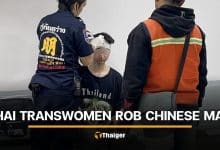Cambodia targets Mother Nature group in latest crackdown on dissent

Though it was founded less than a decade ago, Mother Nature Cambodia has quickly become a major nuisance for Cambodian prime minister Hun Sen’s government. The NGO’s efforts to shed light on environmental issues which are threatening the Southeast Asian country’s diverse ecology as well as its dwindling natural resources, has prompted the Cambodian government to take action.
While six Mother Nature activists were released last week on bail after spending up to 14 months in jail, they are still facing criminal charges and constant harassment from the Cambodian authorities and judiciary. Some of the charges carry up to 10 years in prison.
“They are a thorn in the side of powerful business interests and corrupt government officials as they leverage social media to keep Cambodians informed about what’s happening to their natural landscape,” Ming Yu Hah, Amnesty International’s Deputy Regional Director for Campaigns, said of the environmental activists in an interview with DW.
“Cambodian authorities have repeatedly targeted Mother Nature Cambodia because of the group’s fearless and relentless activism against destructive development projects, illegal mining, pollution, and deforestation,” she added.
The group’s campaigns have included efforts to overturn a planned hydropower project in the remote Areng Valley and expose the mining and export of sand from coastal areas.
Exposing human rights abuses
Their work has, predictably, attracted the attention of Cambodia’s authorities, which have jailed several members of the group for their advocacy as part of a wide crackdown on all forms of dissent.
Mother Nature’s founder Alejandro Gonzalez-Davidson, who was deported from Cambodia in 2015, told DW that the arrests and charges of the group’s activists are aimed at stopping their documentation of “the systematic destruction of the environment,” which in turn has exposed alleged corruption and human rights abuses.
“In Cambodia, the moment any individual or group becomes effective at protecting the environment, human rights, or especially in inspiring other people to speak out, the regime will place as many obstacles as possible to hinder their work,” said Gonzalez-Davidson.
Last week, six activists from the group were released on bail, but they remain subject to judicial supervision, which limits their freedom of movement and requires monthly check-ins with local authorities.
“These tactics are merely an illustration of the precarious environment in which human rights defenders in Cambodia operate, and of the Royal Government of Cambodia’s relentless efforts to stifle opinions,” Chak Sopheap, executive director of the Cambodian Center for Human Rights, told DW.
Who are the activists?
Thun Ratha, Long Kunthea and Phuon Keoraksmey were sentenced in May to between 18 and 20 months in prison, along with Gonzalez-Davidson and Chea Kunthin, two other activists, who were convicted in absentia.
The three environmentalists had been held in pre-trial detention since September 2020 before being convicted of incitement over attempts to organize a peaceful one-woman protest march to Hun Sen’s residence to rally against the filling-in of Phnom Penh’s largest lake.
Although they saw their sentence in their incitement case reduced on November 5 after over 14 months in prison, the trio still face plotting charges on a separate case, which carry a maximum sentence of up to 10 years in jail.
Three other Mother Nature activists, Sun Ratha, Ly Chandaravuth and Yim Leanghy, were arrested in June after documenting wastewater being discharged into Phnom Penh’s Tonle Sap river.
Apart from plotting charges, two of them were also charged with insulting the King, along with Gonzalez-Davidson, who was charged in absentia.
The royal insult charges correspond to remarks made in private online discussions, according to the Cambodian League for the Promotion and Defense of Human Rights (LICADHO).
Crackdown on environmentalists
Amnesty’s Ming Yu Hah says that instead of celebrating Mother Nature’s work, the government “is imprisoning its members as part of a broader crackdown on any form of dissent in an increasingly repressive environment under Prime Minister Hun Sen.”
Others have endured intimidation, or worse, according to the latest UNHCR report.
In early February, five activists were detained while investigating illegal logging in Prey Lang and were only released after thumb printing documents pledging not to return there without official permission.
A month earlier, an indigenous rights activist was found guilty of public defamation over comments published on social media which criticized the government’s approach to the country’s forests and other environmental issues.
Another case has seen an activist go into hiding since July last year after a timber trader filed criminal charges against him.
Prominent activist Leng Ouch, who received the world’s leading environmental prize for his work exposing illegal logging, has also been arrested and detained at least twice in the past two years.
Even in cases where activists have been freed from detention, “most are subject to judicial supervision — which in cases like these is just another form of judicial harassment,” said Pradeep Wagle, representative of the UN High Commissioner for Human Rights in Cambodia.
‘Regime is sending a message’
Persecution and judicial harassment of environmental and human rights activists has dramatically increased recently.
In just the last 18 months, 25 human rights campaigners have been arrested and charged, according to the United Nations Human Rights Cambodia Office. Some have already been convicted while others have been detained and are awaiting trial.
“Imprisonment has become a common price to pay by those who speak out for human rights in Cambodia, made possible by the use of the subservient judiciary,” Sopheap told DW.
Mother Nature’s Alejandro Gonzalez-Davidson said: “The regime is trying to send a message to the Cambodian population, and particularly the youth, that telling the truth and being active in the protection of the environment and human rights, can carry very negative consequences.”
Edited by: John Silk
SOURCE: DW News
Latest Thailand News
Follow The Thaiger on Google News:


























